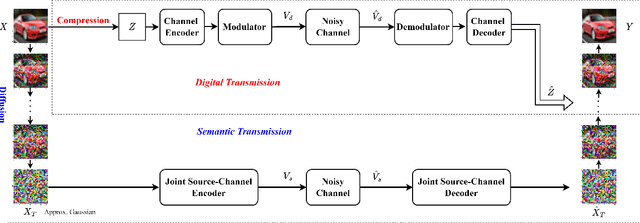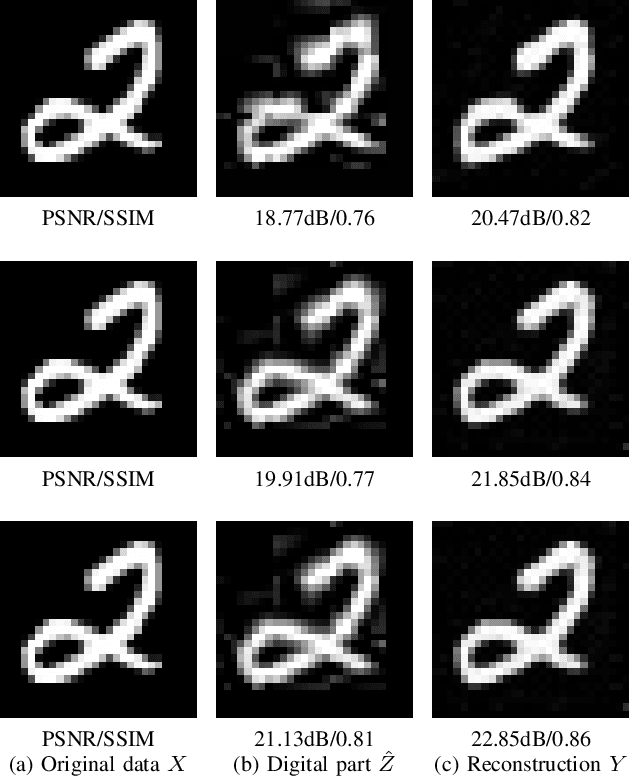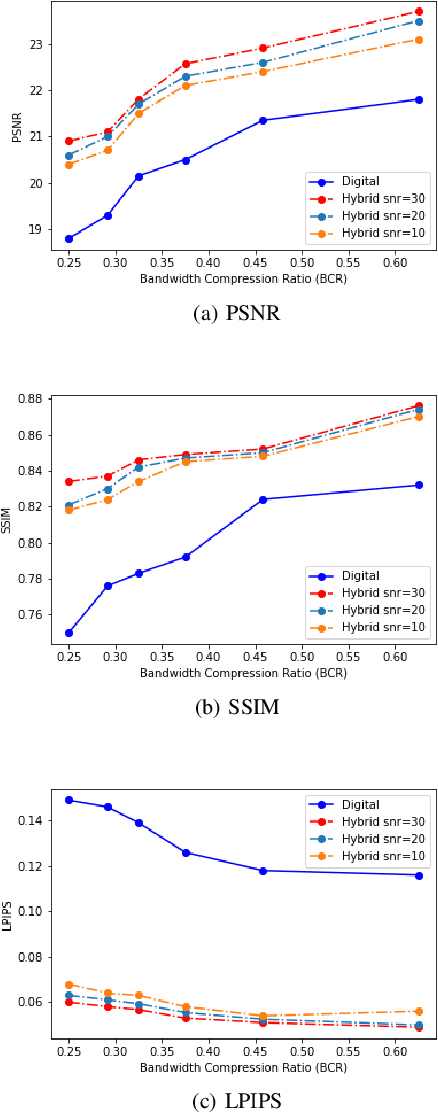Guohua Zhou
A Hybrid Wireless Image Transmission Scheme with Diffusion
Aug 16, 2023



Abstract:We propose a hybrid joint source-channel coding (JSCC) scheme, in which the conventional digital communication scheme is complemented with a generative refinement component to improve the perceptual quality of the reconstruction. The input image is decomposed into two components: the first is a coarse compressed version, and is transmitted following the conventional separation based approach. An additional component is obtained through the diffusion process by adding independent Gaussian noise to the input image, and is transmitted using DeepJSCC. The decoder combines the two signals to produce a high quality reconstruction of the source. Experimental results show that the hybrid design provides bandwidth savings and enables graceful performance improvement as the channel quality improves.
Electromagnetic-Compliant Channel Modeling and Performance Evaluation for Holographic MIMO
Jan 13, 2023



Abstract:Recently, the concept of holographic multiple-input multiple-output (MIMO) is emerging as one of the promising technologies beyond massive MIMO. Many challenges need to be addressed to bring this novel idea into practice, including electromagnetic (EM)-compliant channel modeling and accurate performance evaluation. In this paper, an EM-compliant channel model is proposed for the holographic MIMO systems, which is able to model both the characteristics of the propagation channel and the non-ideal factors caused by mutual coupling at the transceivers, including the antenna pattern distortion and the decrease of antenna efficiency. Based on the proposed channel model, a more realistic performance evaluation is conducted to show the performance of the holographic MIMO system in both the single-user and the multi-user scenarios. Key challenges and future research directions are further provided based on the theoretical analyses and numerical results.
 Add to Chrome
Add to Chrome Add to Firefox
Add to Firefox Add to Edge
Add to Edge